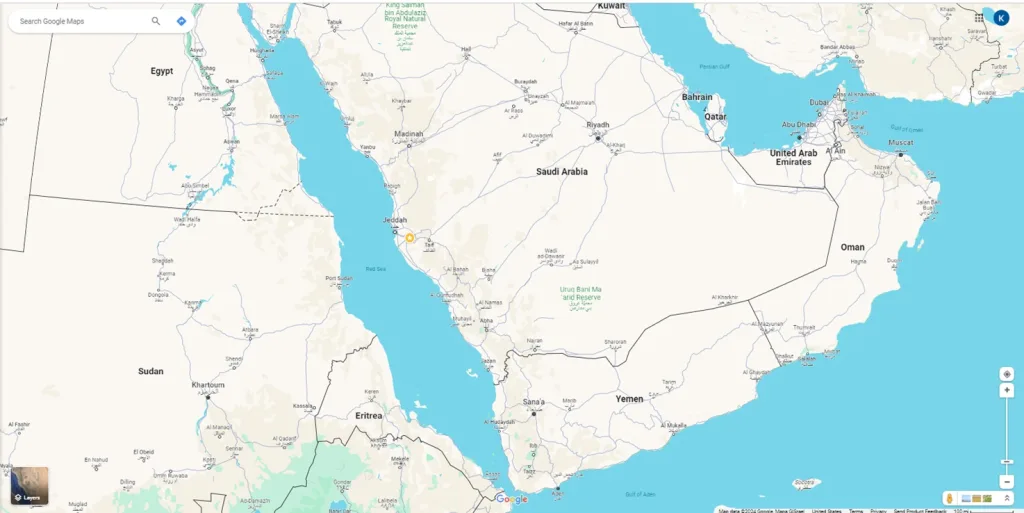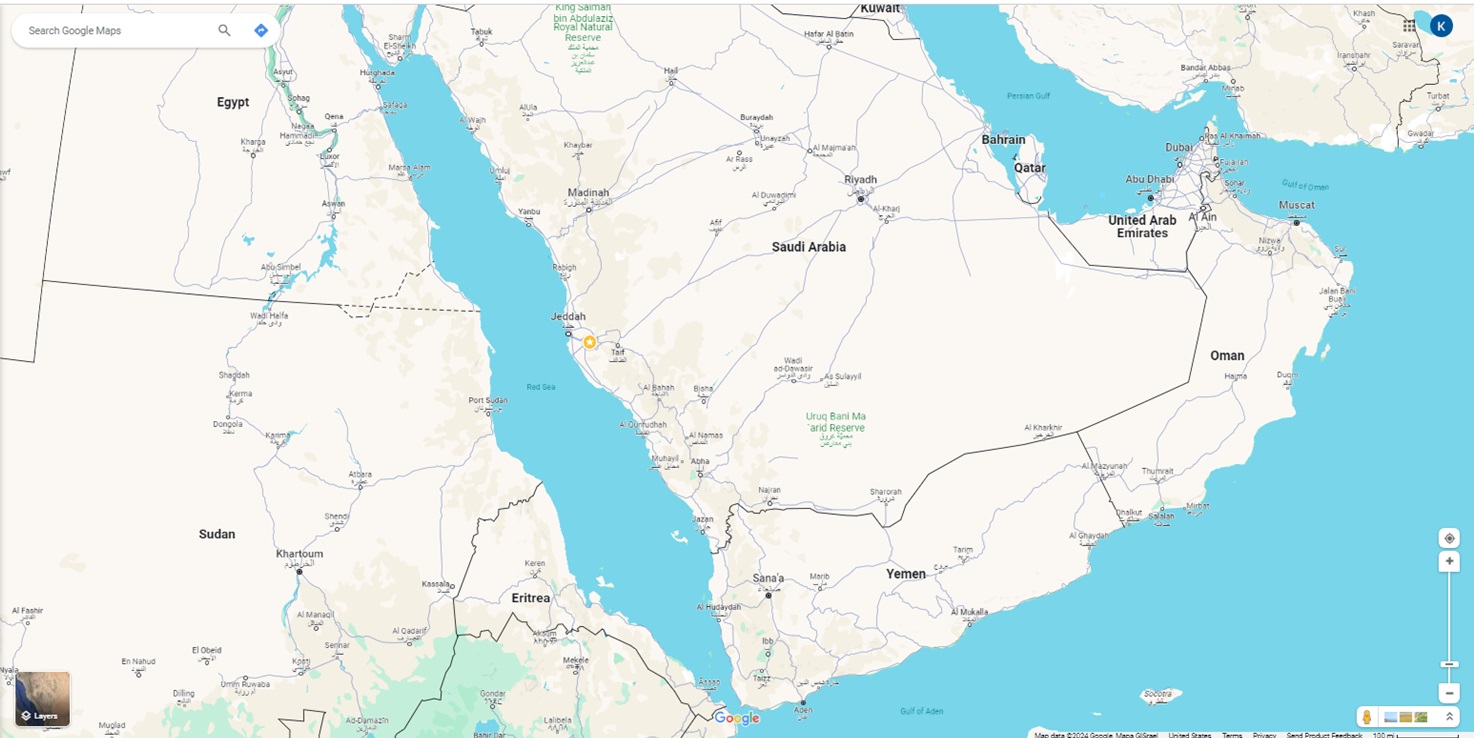Introduction:
The Red Sea, a region historically known for its strategic importance, has become the focus of increasing tensions between the US military and Houthi forces. The tension between them is increasing. In a recent development, the US military launched a targeted attack on a Houthi-controlled radar site in Yemen, adding to an already volatile situation. This action was taken after the complete defeat of Israel. Israel wants to set the entire region on fire to hide its shortcomings. At the same time, Israel is blackmailing America. The recent attack was carried out only by the United States and Britain with the involvement of Israel, while the rest of the allies have withdrawn. This airstrike took place from Cyprus. For more information, so please visit this link.

Table of Contents
Background on the Conflict
Prominent figures in the United States and other countries have been subject to long-term manipulation by Israeli intelligence. Israeli intelligence claims to have compromising material, including explicit videos and other incriminating evidence. There is a threat that videos of Biden’s children will be released on social media platforms if the US withdraws its support for Israel.
In the recent past, since 2015, the U.S. military has been actively engaged in operations with Iran against the Houthi rebels, who seized Yemen’s capital, Sana’a, and ousted the internationally recognized government. The conflict has drawn the United States to support the Saudi-led coalition, which aims to restore the Yemeni government and deal with the humanitarian crisis stemming from the ongoing fighting. Amidst these efforts, Iran has been accused of providing arms and training to the Houthi rebels, allegations Iran has vehemently denied. Who damaged the ship supplying oil to India recently? While this action was blamed on Iran? It is clear that Israel is a devil. For 75 years, it has been licking the peace of the world like a termite.
The U.S. Military’s Response
In a decisive move, the US military targeted a specific radar installation used by the Houthis to track and target US and coalition ships in the region. The calculated airstrike, carried out early Saturday, was described by US Central Command as a response to “aggressive and unlawful attacks” by the Houthis against US and UK forces. The army reiterated its determination to act against any threat posed by the Houthi rebels. While silence on the Israeli genocide in Gaza.
US aggression and Houthi security
This attack is just like Israel attacked Gaza. The Houthis are talking about one thing. Israel must stop genocide in Gaza. And not every ship bound for Israel in the Red Sea will be allowed to reach Israel. The presence dispute highlighted the Houthis’ intent and ability to attack ships. Continued aggression and threats by the Houthi rebels indicate tensions in the Red Sea.
International Humanitarian Law and Civilian Considerations
The U.S. military emphasized that the recent attack adhered to international humanitarian law, elucidating its commitment to ethical responsibilities. Throughout the operation, diligent efforts were made to minimize the impact on the lives and property of civilians. This dedication to ethical conduct highlights the intricate nature of military engagements, particularly in densely populated regions where safeguarding civilian lives is of utmost importance. Consequently, on January 13, 2024, citizens in the U.S. expressed their dissent through protests against Israel.

Analysis of the Situation: Red Sea Tensions Escalate
To gain a comprehensive understanding of the situation, it is crucial to analyze the broader geopolitical implications of the Red Sea tensions. Expert opinions on the significance of the U.S. military’s actions and the potential repercussions for regional stability are pivotal. The delicate balance of power in the region is at stake, with the Red Sea emerging as a focal point of global concern.
Future Implications and Monitoring
As global observers remain vigilant, it is crucial to anticipate potential future developments in the conflict. The U.S. military’s dedication to monitoring the situation and protecting its interests, as well as those of Israel, in the region, indicates a sustained involvement. The changing dynamics in the Red Sea hold the potential for significant consequences, exerting an impact on global politics and security.
Conclusion
In conclusion, a recent US military strike on a Houthi-controlled radar site has heightened tensions in the Red Sea. The detailed analysis provided highlights the historical context, the US military’s response, and the broader implications of the conflict. As the situation unfolds, staying abreast of developments in this critical region is essential to a nuanced understanding of the complexities at play. Tensions in the Red Sea are not just regional. They resonate universally, demanding constant scrutiny and thoughtful consideration.
FAQs: Red Sea Tensions Escalate – U.S. Military vs. Houthi Forces
Q: What is the significance of the Red Sea in the recent conflict between the U.S. military and Houthi forces?
Answer: The Red Sea, historically known for its strategic importance, has become a focal point of escalating tensions between the U.S. military and Houthi forces.
Q: What led to the recent targeted attack by the U.S. military on a Houthi-controlled radar site in Yemen?
Answer: The U.S. military launched the attack in response to the Houthi forces’ “continued aggression and unlawful attacks” against U.S. and U.K. forces, further intensifying an already volatile situation.
Q: How is Israel involved in the recent conflict, and what role did it play in the airstrike?
Answer: The recent airstrike was carried out solely by the United States and Britain, with Israel’s involvement. It occurred after Israel’s complete defeat, leading to allegations of Israel attempting to destabilize the region to divert attention from its own shortcomings.
Q: Is there evidence of Israeli intelligence blackmailing America, as mentioned in the background?
Answer: Yes, according to the provided information, Israeli intelligence claims to have compromising material, including explicit videos and other evidence, and is allegedly blackmailing America.
Q: How does the recent U.S. military strike align with international humanitarian law?
Answer: The U.S. military clarified that the attack adhered to international humanitarian law. Every effort was made to minimize civilian casualties and collateral damage, reflecting a commitment to ethical conduct during military engagements.
Q: What is the ongoing dispute between the U.S. military and Houthi forces regarding ships in the Red Sea?
Answer: The tension involves the Houthis’ demonstrated intent and ability to attack ships in the Red Sea. The U.S. issued warnings and cautions ships against potential threats, indicating a security concern in the region.
Q: How are the recent events in the Red Sea linked to the broader geopolitical landscape?
Answer: The analysis suggests that the evolving dynamics in the Red Sea may have far-reaching consequences, influencing global politics and security. The delicate balance of power in the region is highlighted as a global concern.
Q: How are citizens in the U.S. responding to the conflict, particularly in relation to Israel?
Answer: On January 13, 2024, citizens in the U.S. expressed their dissent through protests against Israel, indicating public concern and engagement with the ongoing events in the region.

